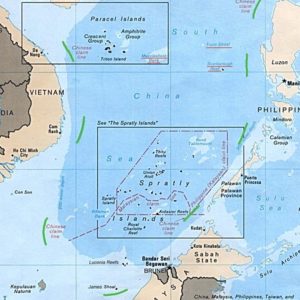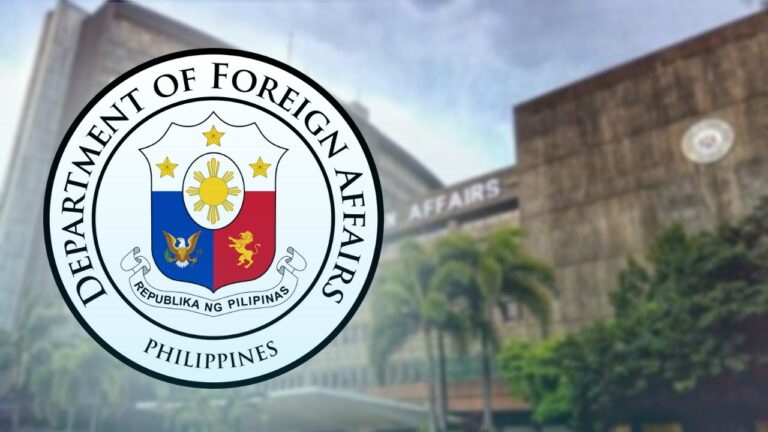ASEAN HEADLINE -ASIA GEOPOLITICS | PHILIPPINES: PH goes to UN body to seek extension of continental shelf
.
.

MANILA, Philippines — The Philippines formally asked a United Nations body on Saturday to extend its continental shelf in the West Philippine Sea where it could explore and exploit natural resources even as its maritime conflict with China continues to simmer.
The Department of Foreign Affairs (DFA) said the government submitted information on the extended continental shelf (ECS) in the South China Sea, particularly in the western Palawan region, to the UN Commission on the Limits of the Continental Shelf.
It invoked its right under the United Nations Convention on the Law of the Sea (Unclos), the DFA said.
.
READ: Uphold Unclos to ensure peace, stability in South China Sea — DFA
‘Maritime entitlements’
Unclos defines continental shelf as the submerged extension of a coastal state’s land territory covering the seabed and subsoil beyond its territorial sea up to the edge of its 370 kilometer (200 nautical-mile) exclusive economic zone (EEZ).
Article 76 allows the coastal state to extend the outer limits of its continental shelf to a maximum of 648 km (350 nautical miles) from the baselines of its territorial sea.
READ: UN approves PH territorial claim to Benham Rise
Article 77 grants coastal states sovereign rights over natural resources found on or beneath the continental shelf, including minerals and other nonliving matter, as well as organisms that are fixed to the seabed or subsoil.
Foreign Assistant Secretary Marshall Louis Alferez said the filing of the claim was a “declaration of the Philippines’ maritime entitlements under Unclos.”
The Inquirer requested the Chinese Embassy in Manila for comment, but it did not immediately respond.
Alferez emphasized that the submission aimed to secure the Philippines’ sovereign rights and maritime jurisdictions in the West Philippine Sea.
The 2016 South China Sea arbitral award, he said, affirmed the Philippines’ maritime entitlements and dismissed excessive geographic and substantive claims by China under Unclos.
…
For future generations
“Incidents in the waters tend to overshadow the importance of what lies beneath,” Alferez said in a statement. “The seabed and the subsoil extending from our archipelago up to the maximum extent allowed by Unclos hold significant potential resources that will benefit our nation and our people for generations to come.”
“Today, we secure our future by making a manifestation of our exclusive right to explore and exploit natural resources in our ECS entitlement,” he said.
The sovereign rights over the continental shelf granted to a coastal state are exclusive, which means that if the coastal state does not use or develop the continental shelf, others cannot do so without its permission.
Alferez said that the Philippines’ submission was a step toward discussing boundary issues and future cooperation and respected ongoing discussions with other coastal states that might have valid claims under Unclos.
“What is important is [that] the Philippines puts on record the maximum extent of our entitlement,” Alferez said.
…
Not provocative
Maritime law expert and retired Supreme Court Senior Associate Justice Antonio Carpio said the Philippines’ move was an “exercise of our legal right,” which is enjoyed by all member states of Unclos.
“The exercise of such a right under international law is a peaceful act and cannot be deemed provocative. No country can claim that the Philippines is raising tensions in the South China Sea by virtue of such act,” Carpio told the Inquirer.
The 2016 arbitral award invalidated China’s expansive historical claims to the South China Sea, saying these had no legal basis. China continues to reject the ruling and insists that it has “undisputed sovereignty” over much of the strategic waterway. It has repeatedly driven away Filipinos, many times using water cannons, from maritime features and fishing grounds within the Philippines’ EEZ.
China’s sweeping claims over the West Philippine Sea includes Recto (Reed) Bank, located within the Philippines’ EEZ. The area is believed to hold an estimated 165 million barrels of oil and 98.7 billion cubic meters of gas, according to the Department of Energy.
…
Defining sea-lanes
Cagayan de Oro Rep. Rufus Rodriguez, a staunch critic of China’s intrusions into the West Philippine Sea and the harassment and bullying of Filipino fishermen, has called on the Senate to approve a bill to define the country’s sea-lanes to deter encroachments on Philippine waters by Chinese and other foreign vessels and aircraft.
The House passed its version of the bill in December last year.
“We should take all measures to protect our nation’s territorial integrity and sovereignty. The Chinese are not only intruding in the western part of our country but in the south as well,” he said in a statement on Friday.
Rodriguez cited the passage of People’s Liberation Army-Navy training ship and amphibious transport dock vessel last week through the Basilan Strait between Zamboanga City and Basilan province as they headed to the West Philippine Sea.
Maritime experts and the Philippine Navy, however, say that Basilan Strait is open to “innocent passage” for foreign vessels, including warships, as long as they do not linger.
House Bill No. 9034 authored by Rodriguez, sets the coordinates designating the sea-lanes and air routes for the continuous and expeditious sailing or flight of foreign ships and aircraft exercising the right of innocent passage.
The proposed law will allow the President to issue rules and regulations relating to the management and security of the country’s archipelagic and adjacent waters.
Transiting ships and planes shall be prohibited from conducting any oceanography or hydrographic survey or research activity unless permitted by the Philippine government.
Enacting the bill, Rodriguez said, would strengthen enforcement by the military and other authorities of sovereign rights within its territory.
“As usual, we should expect adverse reactions from the Chinese, which we should ignore. Let’s think only of our national interest,” he added.
…
Philippine Rise
Saturday’s submission to the UN commission was the second time that the country had pursued its ECS entitlements after it made a partial submission concerning the Philippine (Benham) Rise in April 2009.
That submission was validated in 2012, subsequently adding 135,506 square km of seabed of the Philippine Sea
“We have long prepared for this, and in fact, we mentioned in our Philippine (Benham) Rise submission in 2009 that we reserved our right to make further submissions to the west. It was a long interagency process that involved deliberate and intensive scientific research and review,” the DFA said in a statement. The National Mapping and Resource Information Agency led the technical working group that prepared the latest submission “for over a decade and a half.” The team worked on gathering and processing of data on geodetic and hydrographic information, and geophysical and geological information to substantiate the submission, the DFA said. —with a report from Krixia Subingsubing
For comprehensive coverage, in-depth analysis, and the latest updates on the West Philippine Sea issue, visit our special site here. Stay informed with articles, videos, and expert opinions.

@[email protected]


 Memento Maxima Digital Marketing
Memento Maxima Digital Marketing







